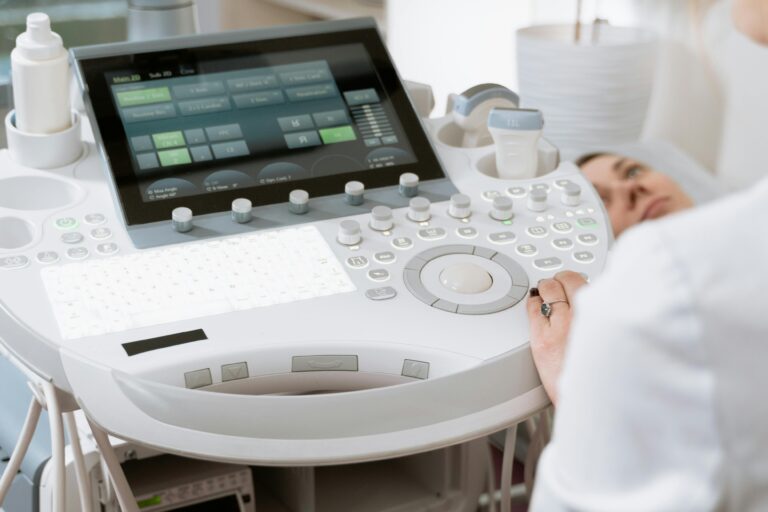Common Causes of Irregular Periods

Irregular periods can be frustrating and concerning for many women. While every woman’s cycle is unique, most menstrual cycles occur every 21 to 35 days and last between two to seven days. But when your period comes earlier, later, or even skips a month altogether, it might feel confusing or even worrisome.
Understanding the common causes of irregular periods can help you know what’s normal and when it might be time to talk to your doctor. In this article, we’ll explore what causes irregular periods, explain each cause in simple terms, and provide practical advice for managing your cycle.
What Are Irregular Periods?
Before diving into the causes, let’s understand what qualifies as an irregular period.
Irregular periods mean:
- Your cycle is shorter than 21 days or longer than 35 days.
- The length of your cycle changes frequently.
- You skip periods without being pregnant or menopausal.
- Your period flow is unusually light or heavy.
Now let’s explore the most common reasons why this happens.
1. Stress
Stress is one of the most common reasons for irregular periods. When you’re stressed—whether it’s due to work, school, relationships, or life changes—your body produces more of the hormone cortisol. This hormone can interfere with the balance of reproductive hormones like estrogen and progesterone.
What you can do: Try relaxation techniques like meditation, exercise, journaling, or simply taking breaks. Your mental health directly impacts your physical health.
2. Polycystic Ovary Syndrome (PCOS)
PCOS is a hormonal disorder that affects how the ovaries function. Women with PCOS often have higher levels of androgens (male hormones), which can stop ovulation or make it irregular.
Symptoms of PCOS include:
- Irregular or missed periods
- Excess facial or body hair
- Acne
- Weight gain
What you can do: If you suspect PCOS, visit a healthcare provider. Treatment might include birth control pills, weight management, or medications that regulate hormones.
3. Thyroid Problems
The thyroid is a small gland in your neck that controls metabolism and hormone regulation. Both hypothyroidism (underactive thyroid) and hyperthyroidism (overactive thyroid) can affect your menstrual cycle.
Symptoms to watch for:
- Fatigue
- Weight gain or loss
- Hair thinning
- Feeling too cold or too hot
What you can do: A simple blood test can check your thyroid levels. If there’s an issue, your doctor can suggest treatment options.
4. Extreme Weight Loss or Gain
Sudden or significant weight changes can disrupt your hormone levels. Body fat plays a key role in estrogen production, so having too much or too little can throw your cycle off.
- Being underweight (e.g., from restrictive dieting or eating disorders) may stop your period entirely.
- Being overweight can lead to excess estrogen, which can cause heavy or irregular bleeding.
What you can do: Aim for a healthy, balanced diet and regular physical activity. If you’re struggling with eating habits or weight, talk to a healthcare provider.
5. Over-Exercising
While regular exercise is great for overall health, too much intense physical activity—especially without proper nutrition—can interfere with your menstrual cycle.
This is common in athletes, dancers, or anyone doing high-endurance workouts.
What you can do: Make sure your exercise routine is balanced and you’re eating enough to fuel your body. Rest is just as important as training.
6. Birth Control
Hormonal birth control methods—like the pill, patch, shot, or IUD—can cause changes in your menstrual cycle, especially when you start or stop using them.
Some types can make periods lighter, while others may stop them altogether.
What you can do: If you’re concerned about changes in your cycle, talk to your doctor. It’s usually not harmful, but understanding your body’s reaction to different methods can help you choose the best option.
7. Perimenopause
Perimenopause is the transition time before menopause, usually starting in a woman’s 40s. During this time, hormone levels fluctuate, which can lead to irregular periods.
Other signs include:
- Hot flashes
- Night sweats
- Mood swings
- Vaginal dryness
What you can do: Track your symptoms and talk to your doctor if they affect your daily life. Hormone therapy or natural remedies may help manage the changes.
8. Chronic Medical Conditions
Conditions like diabetes, celiac disease, or lupus can affect your menstrual cycle. These illnesses impact your body’s overall hormone and immune function.
What you can do: If you have a chronic condition and notice changes in your cycle, inform your doctor. They may adjust your treatment plan to support hormone balance.
9. Medications
Some medications, especially those affecting hormones, the brain, or the immune system, can cause menstrual changes. This includes antidepressants, antipsychotics, and even certain allergy or blood pressure drugs.
What you can do: Don’t stop medications on your own. Instead, speak with your doctor about possible side effects and alternatives.
10. Pregnancy and Breastfeeding
Missing a period is often the first sign of pregnancy. While this might seem obvious, some women don’t realize they’re pregnant until other symptoms appear.
Breastfeeding can also delay the return of your regular periods due to increased levels of prolactin, a hormone that affects ovulation.
What you can do: If you’ve missed a period, take a pregnancy test or consult your doctor.
How to Track and Manage Irregular Periods
Keeping a menstrual diary or using a period-tracking app can help you spot patterns and identify potential triggers.
Helpful tips:
- Note the start and end of your period.
- Track symptoms like pain, mood changes, or flow levels.
- Record any unusual stress or lifestyle changes.
When to See a Doctor
You should see a healthcare provider if:
- You’ve missed three or more periods in a row.
- Your cycle is consistently shorter than 21 or longer than 35 days.
- Your periods are very painful, heavy, or come with unusual symptoms.
Early diagnosis can help manage any underlying issues and improve your quality of life.
Frequently Asked Questions (FAQs)
1. Is it normal to have an irregular period once in a while?
Yes, occasional irregularities are normal, especially during stressful times, illness, or lifestyle changes. But if it becomes a regular pattern, it’s best to consult your doctor.
2. Can I still get pregnant if my periods are irregular?
Yes, but it might be harder to predict ovulation. If you’re trying to conceive, tracking ovulation using apps or ovulation kits can help. Speak with a fertility specialist if needed.
3. Do irregular periods mean I have a serious problem?
Not always. Many causes of irregular periods are harmless or temporary, like stress or a change in routine. However, persistent issues should be evaluated by a healthcare professional.
4. Can diet and lifestyle changes help regulate periods?
Absolutely. A healthy diet, regular exercise, stress management, and maintaining a healthy weight can all help balance hormones and improve cycle regularity.
5. How is the cause of irregular periods diagnosed?
Your doctor might use a combination of medical history, physical exams, blood tests (to check hormones), ultrasounds, or other imaging tests to find the cause.
Conclusion
Irregular periods are common and can be caused by a variety of factors, from stress and lifestyle habits to medical conditions like PCOS or thyroid issues. While occasional changes are normal, consistent irregularity deserves attention. By understanding your body, tracking your cycle, and seeking medical advice when needed, you can take charge of your reproductive health.
Dr. Emma Green is a health and wellness expert with over 10 years of experience in nutrition and fitness. Passionate about helping others live their healthiest lives, Dr. Green shares practical advice on wellness, nutrition, and sustainable living through LivingSpristine.






